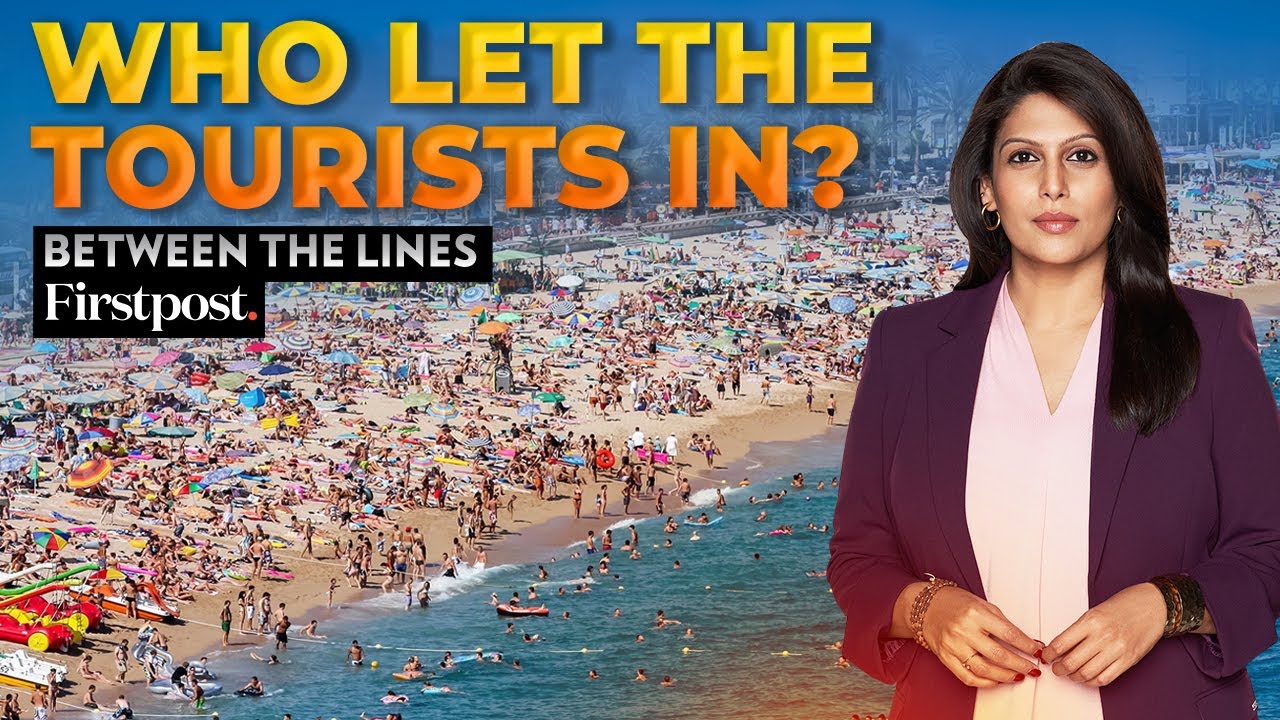How Macchu Picchu, Venice and Bali are fighting overtourism
Summary
TLDRThe video explores the shift from over-tourism to no tourism, highlighting key drivers such as budget airlines, short-term rentals, cruise ships, social media, and popular media like movies and TV shows. It discusses how locations like Thailand's Maya Beach and Austria's Hallstatt have become overwhelmed by visitors. To address this, solutions like managing tourist flow and promoting regenerative travel are suggested. The importance of recognizing the collective role of all tourists is emphasized, stressing that a balance can be struck between preserving destinations and continuing tourism.
Takeaways
- 😀 The rise of over-tourism is driven by budget airlines, short-term rentals like Airbnb, cruise ships, and social media influencers.
- 😀 Social media, movies, and television can rapidly make locations famous, leading to massive surges in tourism.
- 😀 Thailand's Maya Beach and the village of Hallstatt in Austria serve as examples of how media can create tourism hotspots.
- 😀 Hallstatt, with only 800 residents, attracts a million visitors annually after being featured in a Korean TV series.
- 😀 Some destinations are taking proactive measures, like limiting daily visitor numbers, to combat over-tourism (e.g., Machu Picchu, the Acropolis).
- 😀 Cities like Venice and Bora Bora are saying no to large mega-cruise ships to manage tourism better.
- 😀 Some destinations are implementing new tourism taxes to control the flow of visitors, such as in Europe, Thailand, Japan, and Bali.
- 😀 Tourism taxes alone are not sufficient to solve the problem of over-tourism. A combination of efforts is needed, including better management of tourist flow.
- 😀 'Managing tourist flow' is an emerging strategy that allows destinations to accommodate visitors without overloading certain areas.
- 😀 Regenerative travel, which encourages travelers to give back to the places they visit, is gaining attention as an alternative to extractive tourism.
- 😀 The role of every individual tourist is key—over-tourism is not only caused by others, but we each contribute to it when we visit popular destinations.
Q & A
What is the primary issue discussed in the transcript?
-The primary issue is over-tourism, where cities and popular tourist destinations experience a significant influx of visitors, leading to overcrowding, environmental damage, and local disruptions.
What are some of the key drivers of over-tourism mentioned in the transcript?
-The key drivers include the rise of budget airlines, short-term rentals like Airbnb, cruise ships, social media, influencers, and movies or television shows that make a location more famous.
Can you provide an example of a destination affected by over-tourism due to media influence?
-Yes, Thailand's Maya Beach, which was featured in the movie *The Beach*, became extremely popular, resulting in its closure for conservation. Another example is the small village of Hallstatt in Austria, which receives around a million visitors a year after being featured in a Korean TV series.
What measures are being taken by some locations to combat over-tourism?
-Some places are restricting daily visitors, such as Machu Picchu, the Acropolis, and Borabora. Other locations, like Venice and Bora Bora, are rejecting large mega-cruise ships to reduce overcrowding.
How are some cities using tourism taxes to deal with over-tourism?
-Several cities and countries, including those in Europe, Thailand, Japan, and Bali, are discussing or implementing tourism taxes as a way to manage the negative impacts of over-tourism.
Are tourism taxes enough to solve the problem of over-tourism?
-No, tourism taxes alone are not enough. Experts suggest that other efforts, such as managing tourist flow, are necessary to address the issue effectively.
What is the concept of 'managing tourist flow'?
-Managing tourist flow involves controlling how tourists are distributed across a destination. It allows cities and sites to maintain high visitor numbers without overcrowding by strategically directing tourists to different areas or times.
How is technology helping to manage tourism and address over-tourism?
-Technology is playing a role by helping cities and tourist destinations track and manage the flow of visitors, optimizing tourist distribution, and enhancing the efficiency of such management strategies.
What is regenerative travel, and how does it differ from traditional tourism?
-Regenerative travel is a style of travel where visitors actively contribute to the well-being of the destination they are visiting, for example by participating in conservation or local community initiatives. This contrasts with extractive travel, where tourists simply visit and leave without giving back.
What role do tourists themselves play in the problem of over-tourism?
-Tourists play a role in over-tourism because their individual decisions contribute to the overall volume of visitors. While it may seem like a problem caused by others, every tourist is part of the broader issue, especially when they choose popular destinations during peak times.
Outlines

This section is available to paid users only. Please upgrade to access this part.
Upgrade NowMindmap

This section is available to paid users only. Please upgrade to access this part.
Upgrade NowKeywords

This section is available to paid users only. Please upgrade to access this part.
Upgrade NowHighlights

This section is available to paid users only. Please upgrade to access this part.
Upgrade NowTranscripts

This section is available to paid users only. Please upgrade to access this part.
Upgrade NowBrowse More Related Video

What's the appeal of film tourism?

How Overtourism Is Destroying Cities | Between the Lines with Palki Sharma

What is behind the rise in anti-tourism protests? | BBC News

B4L8 課文動畫(無字幕版)(Too Much of a Good Thing)

Food tourism trend and how to join it

RUMAH GADANG MEMBANGUN EKONOMI MASYARAKAT MELALUI PARIWISATA
5.0 / 5 (0 votes)